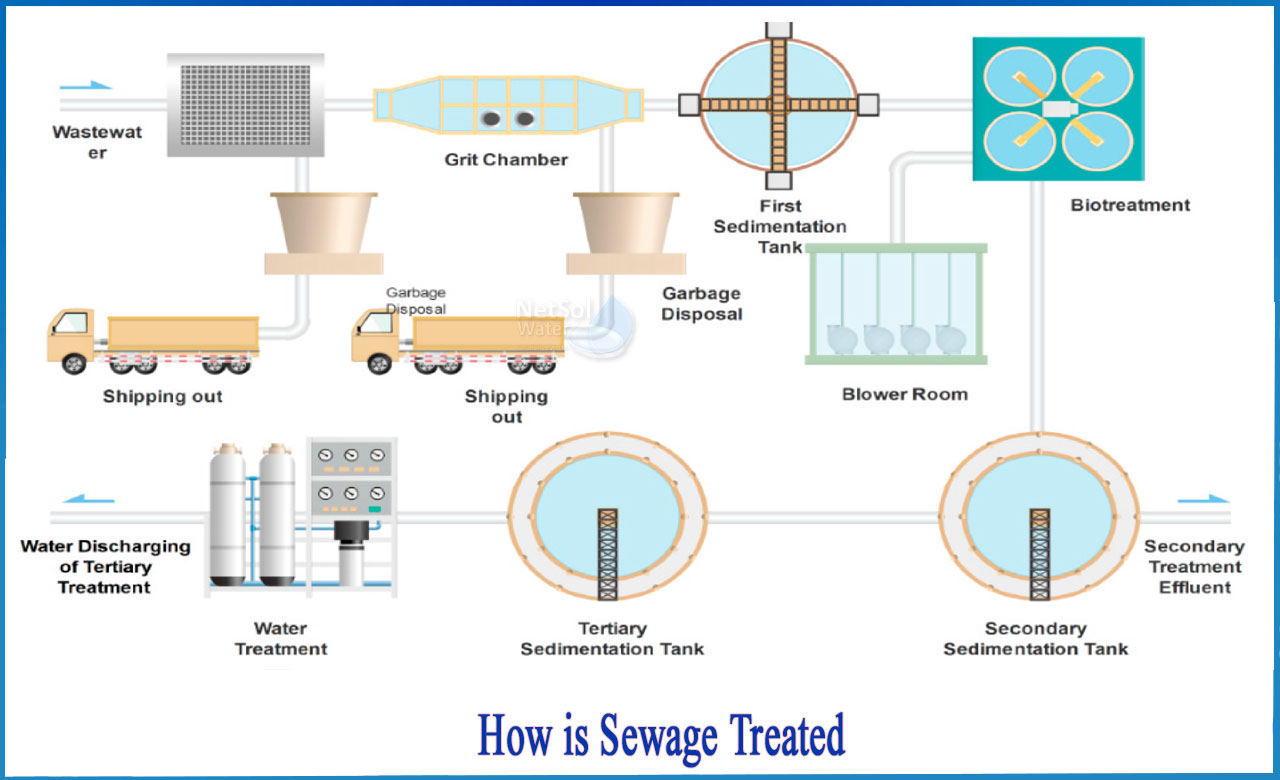How is sewage treated?
Residential and industrial establishments produce sewage. It includes household waste liquid disposed of through sewers from toilets, baths, showers, kitchens, sinks, and so on. Sewage in many areas includes liquid waste from industry and commerce. In the developed world, the separation and drainage of household waste into greywater and blackwater is becoming more common. Greywater is water that can be reused more easily and is generated by domestic activities such as laundry, dishwashing, and bathing. Blackwater is contaminated with human waste and is derived from toilets.
Why are sewage treatment plants required?
Getting connected to main sewers should be the first thought for anyone planning a new development. They are usually the most cost-effective and dependable ways to deal with your wastewater. Obtaining a mains sewer connection, on the other hand, is not always possible. In some cases, the distance from the nearest sewer or the land layout may make it impossible to have your property serviced by a mains sewer. Sewage treatment plants and other alternatives can help with this. The operation of a sewage treatment plant means that it can be installed almost anywhere there is an electrical connection.
Treatment of sewage
A sewage treatment plant works by circulating air in order to promote the growth of bacteria that break down sewage. The ultimate goal is to produce much cleaner, more environmentally friendly effluent. It is similar to a typical septic tank, but there are some key differences. Sewage treatment plants, depending on their size, can treat the waste of a single commercial property or a group of residential dwellings.
Sewage treatment is divided into three stages:
1-Primary treatment
Sewage is stored in a basin in primary treatment, where solids (sludge) settle to the bottom and oil and lighter substances rise to the top. After removing these layers, the remaining liquid can be sent to secondary treatment. Sludge digestion is a separate process for treating sewage sludge.
2-Secondary treatment
Secondary treatment removes dissolved and suspended biological matter in a controlled environment, often using microorganisms. Aerobic bacteria, which consume the organic components of sewage, are used in the majority of secondary treatment systems (sugar, fat, and so on).
3-Tertiary treatment
Tertiary treatment (also known as "effluent polishing") is used to clean water before it is discharged into a sensitive ecosystem. Beyond primary and secondary treatment, a variety of methods can be used to further disinfect sewage. Particulate matter can be removed using sand filtration, which involves passing water through a sand filter. Nutrient levels in wastewater, such as nitrogen and phosphorus, may still be high. These can upset the nutrient balance of aquatic ecosystems, resulting in algae blooms and overgrowth of weeds.
In a process known as enhanced biological phosphorus removal, phosphorus can be eliminated biologically.During this process, specific bacteria known as polyphosphate accumulate organisms that store phosphate in their tissue are accumulated. These biosolids have a high fertiliser value when the biomass accumulated in these bacteria is separated from the treated water. Nitrogen can also be eliminated through the use of nitrifying bacteria.
Another way of removing nutrients and waste from sewage is lagooning. A lagoon holds water, and native plants, bacteria, algae, and small zooplankton filter nutrients and small particles from the water.
Advantages of sewage treatment plants
• Reliable and unlikely to have issues with only routine maintenance
• Installable even on difficult or constrained sites;
• Long-term cost-effective, with only installation, power, and maintenance to pay for.
For more information, contact Netsol Water.
Netsol Water is Greater Noida-based leading water & wastewater treatment plant manufacturer. We are industry's most demanding company based on client review and work quality. We are known as best commercial RO plant manufacturers, industrial RO plant manufacturer, sewage treatment plant manufacturer, Water Softener Plant Manufacturers and effluent treatment plant manufacturers. Apart from this 24x7 customer support is our USP. Call on +91-9650608473, or write us at enquiry@netsolwater.com for any support, inquiry or product-purchase related query.



